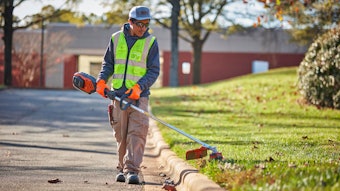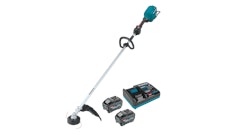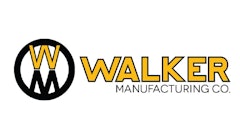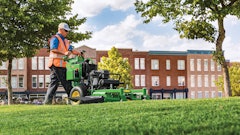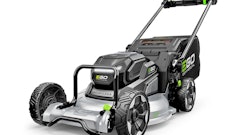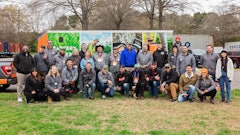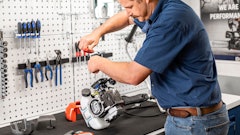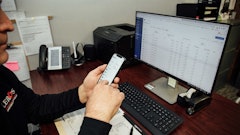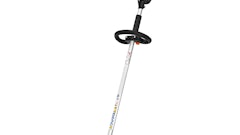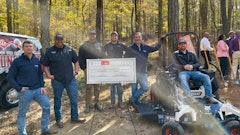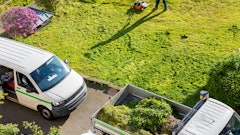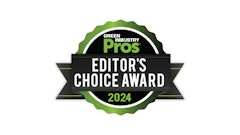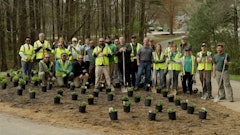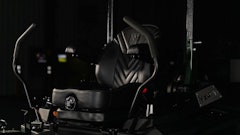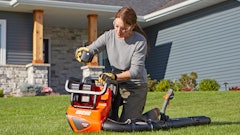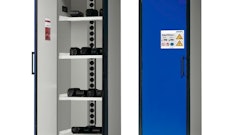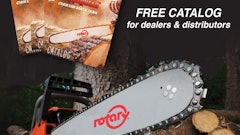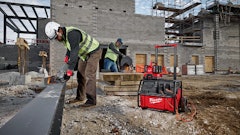
Many dealers have realized that diversification is a good way to supplement sales and increase your chances at success. But what happens when your supplemental business grows so much it starts to compete with your ability to manage properly?
At Engelhart Greensmith in Madison, WI, they made the decision to separate two sides of the thriving business in order to better serve each profit house. Now, the power sports and outdoor power equipment segments are managed separately and successfully on the same lot.
Separate but equal
Engelhart Greensmith is located just off a busy highway on a small lot that sees lots of traffic. They have a strong powersports business that attracts many area hobbyists. Also, as one of the only arborist supply stores in southeast Wisconsin, they see continuous growth on the outdoor power equipment side of the business.
As both sides continued to grow in sales year over year, owners Jerry and Mona Engelhart and Robert Hintz decided in 2005 that the two areas would be better served if managed apart. In the seven years since, they have seen that they made the right choice. Moving into separate buildings has allowed each product segment and respective service department to fine tune operations and better showcase their goods, increasing profitability and sales.
"Both sides have grown in sales each year since the transition in 2005," says Joe Fobes, Engelhart employee. "Moving to the other building has allowed both the dealership and powersports sides to display more products and grow sales. Sales on the power equipment side have doubled since the move."
Fobes manages the outdoor power equipment side of the business. When asked his official title, Fobes brushed it off saying: "There are no titles on our business cards. We are all a team with the same goals and that is for the business to succeed."
And succeed it has. The business has continued to grow stronger with the departments managed separately. Each side has its own individual goals, but work together on things like advertising.
"Each side of this business has its own website, but we model both after the powersports site because we consider it to be more exciting marketing," says Fobes. "The website marketing has helped traffic in the store and online. People like being able to shop from the comfort of their home, but we have to attract them."
The two sides of the business also share the cost of a delivery driver for equipment pickup and returns.
Making the most of a prosperous situation
As the two sides of the business continued to flourish, the dealership started to outgrow its small lot. Wanting to stay in the great location, management had to think of ways to build on to the facility and improve the way space was utilized.
"When it came to facility additions, we realized we had to move up and not out," says Fobes. "We are landlocked, so there was only room to move up."
The long and somewhat T-shaped building attaches the powersports showroom, powersports shop, numerous storage areas and the power equipment showroom and shop. With all areas of the business connected, staff can walk through in the winter and stay out of the cold. A very organized system for storing equipment and parts utilizes all available space.
"A large upstairs storage area houses equipment waiting for repair and pickup as well as new equipment waiting for assembly," says Fobes. "Each piece of equipment is fitted with a color-coded tag so staff can easily see what needs to be done with it."
A red tag means the equipment is waiting on parts. An orange tag means it is repaired and ready to be cleaned and sent back to the customer. Once work on the equipment is completed, it is put in a numbered bay to await pickup.
"The bays are numbered 1-9 with the numbers matching the last digit of the repair order number," explains Fobes. "It helps us find equipment fast and bring it down by elevator." For larger loads that need to be moved to or from the second floor, there is a loft gate that opens, allowing a forklift to access equipment.
The original service department, now dedicated solely to powersports, featured a pull-through bay that commercial customers enjoyed and appreciated. To keep them happy, space was found to add one on the side of the building next to the power equipment shop. As they continue to add to the building's structure, they've realized a move might be imminent.
"We would like to buy the lot behind the business and continue to expand, but the price is far too high," explains Fobes. "We anticipate moving the business to another location in the next two years to accommodate the growth. For now we will just grow with what we have and do the best we can."
Adapting to the customer base
The team at Engelhart works hard to grow and maintain the customer base. They look for every opportunity to attract a potential customer or meet a new need. When an area dealer Anderson Thomas closed their doors, Fobes saw the opportunity to reach out to the customers left behind.
"They struggled with the big box competition like the rest of us. Their customer base continued to shrink and they had to close," explains Fobes. "I wanted to take on those customers left behind that hadn't gone to the big box."
Fobes had a clever idea for getting customers to Engelhart Greensmith—they took over the closed business' phone number and added a line that went straight to his desk at Engelhart.
"We had to wait a year to have the phone line, but the wait was well worth it," says Fobes. "In the beginning it rang 10 times a day. We eventually had it directed to a central mailbox with a voicemail saying, 'We are now servicing Anderson Thomas customers." It was important to mention Anderson Thomas so people wouldn’t think they had called the wrong number.
For $16 a month, Fobes says it was the best money they have ever spent on marketing. After taking on a lot of the Anderson Thomas customers, and hearing what brands they prefer, Fobes is considering adding them to their offering.
Their commercial customer base will be their next focus, as Fobes and the team find ways to grow it. Currently, commercial customers make up 20% of their business. Fobes' goal is to get it to 50% commercial and 50% consumer.
"We stick with the same philosophy we use for consumer customers and support the commercial customers after the sale," explains Fobes. "To speed that growth we are bringing in the products they are looking for, stocking high demand parts, and keeping repair time turnaround to next-day if not sooner."
Some of the products they are looking to bring in include walk-behind blowers and vacuums as well as chippers. They are also considering stocking more of the common accessories such as leaf collection units and mulch kits.
They also have loaners available for brands they sell and offer services to benefit mid-sized commercial cutters who don't have their own mechanics. New extended hours will also be introduced to attract the commercial base.
"They need the service as an added benefit to increase their production time," says Fobes. "We will be opening our service and parts departments earlier at least one day a week as the cutting season approaches."
The business is open until 7 p.m. four days a week during the spring and summer, but Fobes says sometimes it is easier for customers to grab a belt or blade in the morning than at night.
"The commercial segment is an excellent growth opportunity and meeting their needs will be the success of building those relationships," says Fobes. "Customer service is a critical component of a successful business, customers are more demanding and do not have time for excuses. We are listening to our customers and trying to offer as many of the products, parts and services they need as possible. It helps us to continuously grow and diversify."

